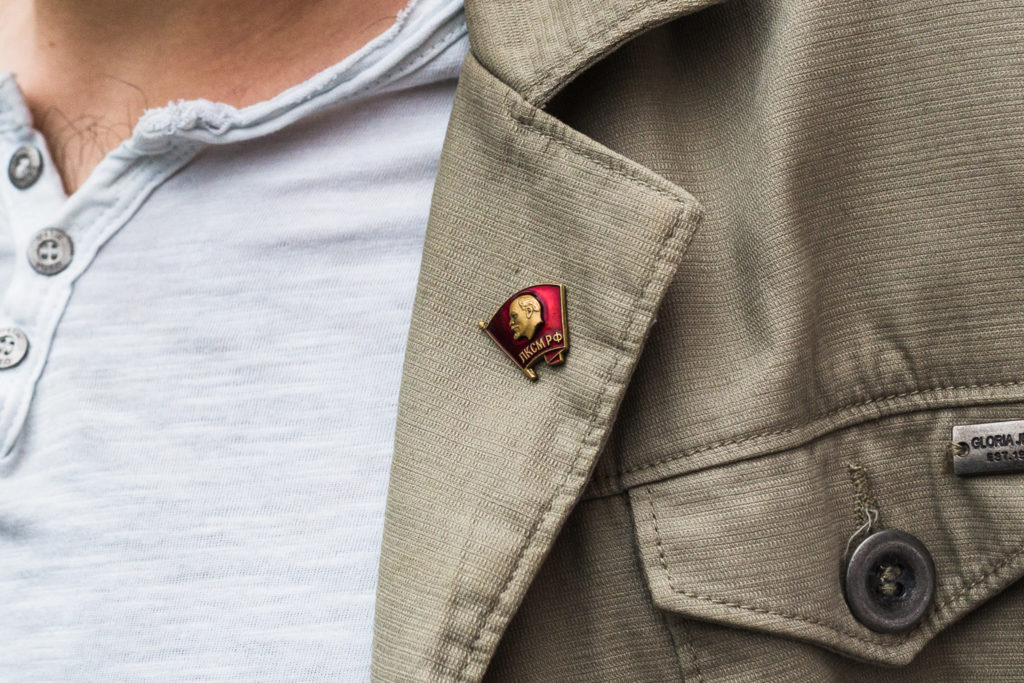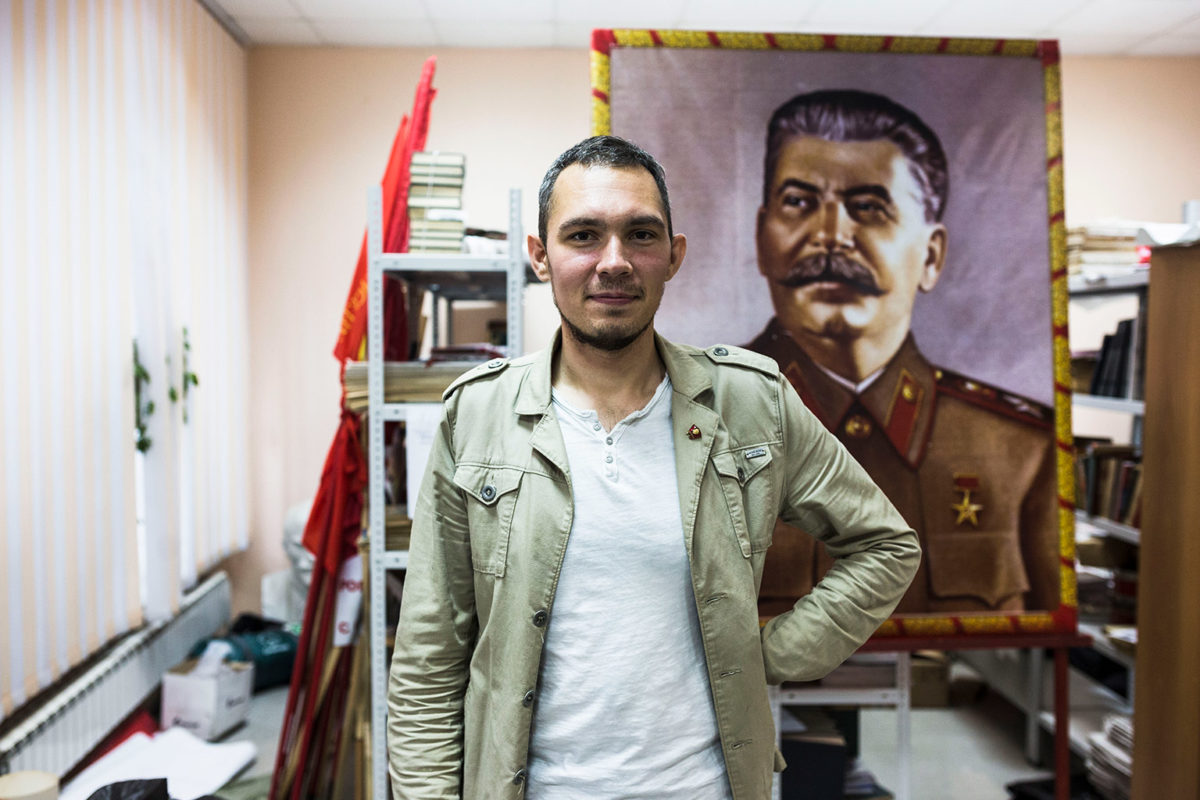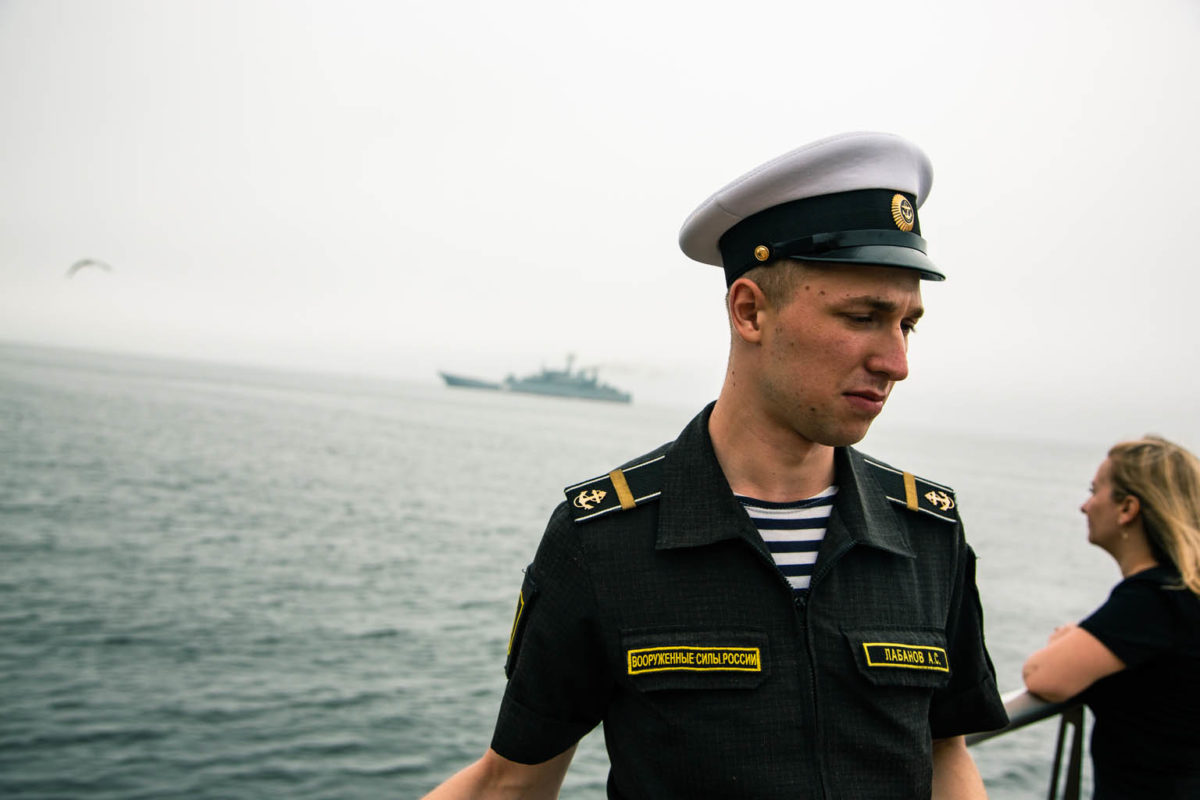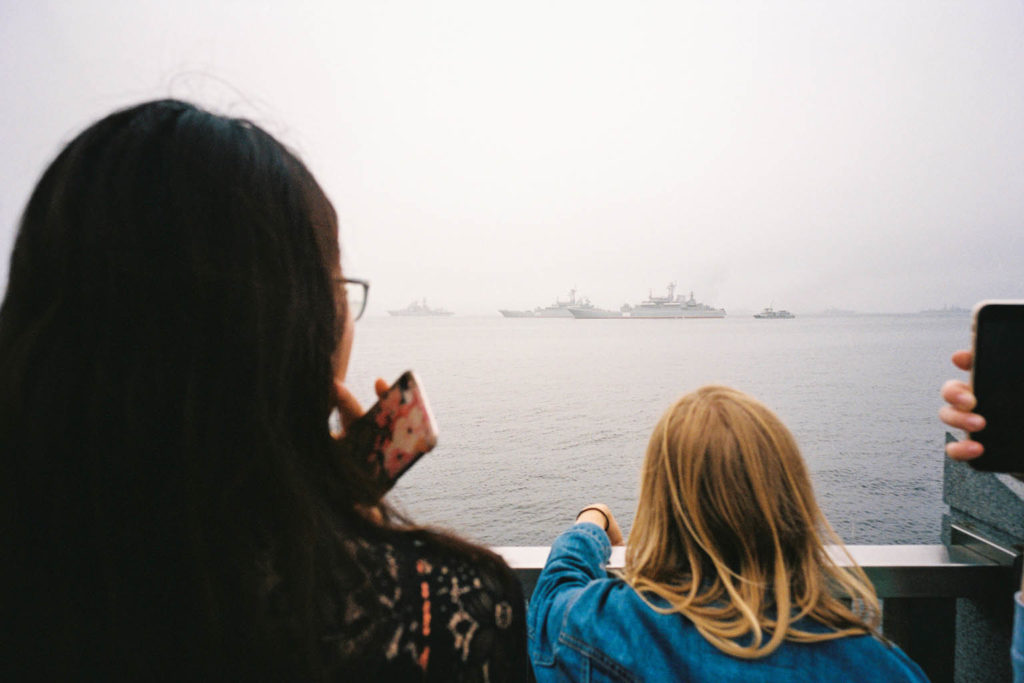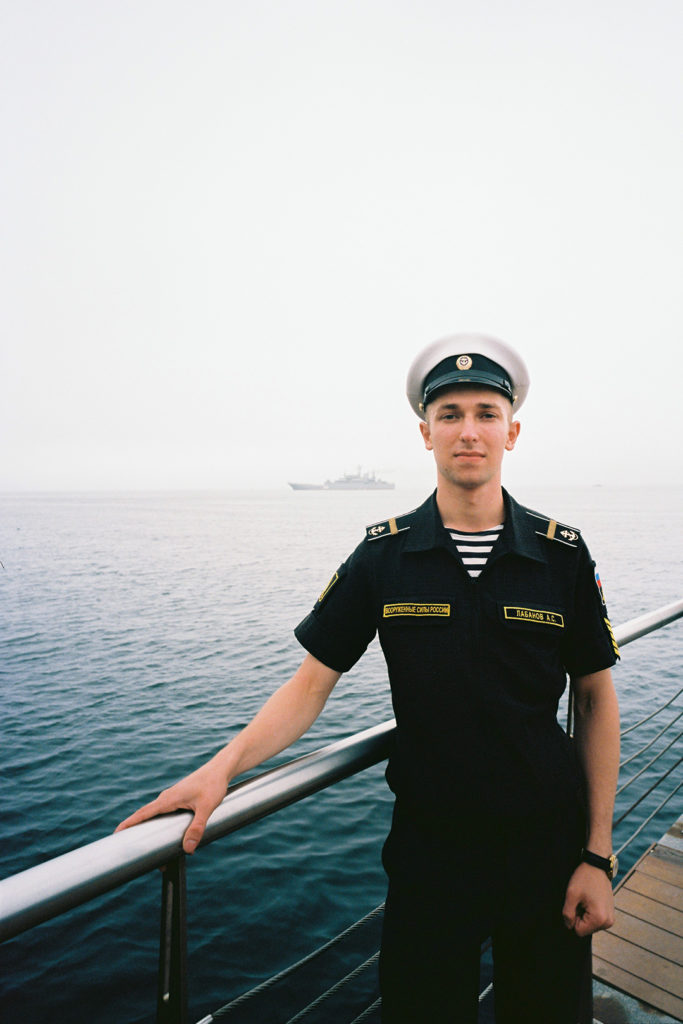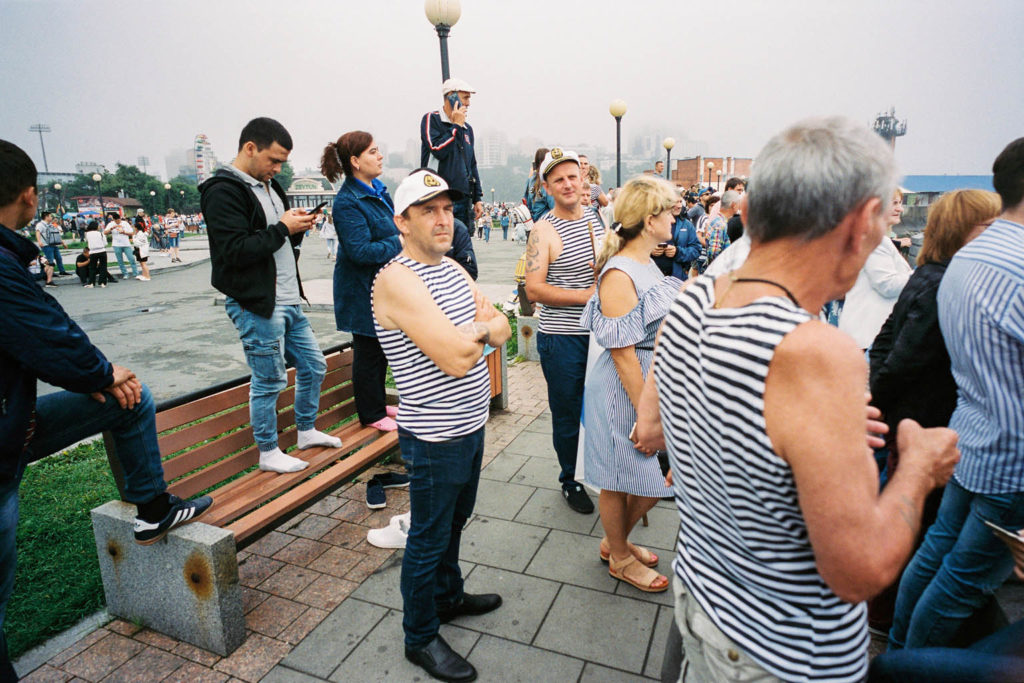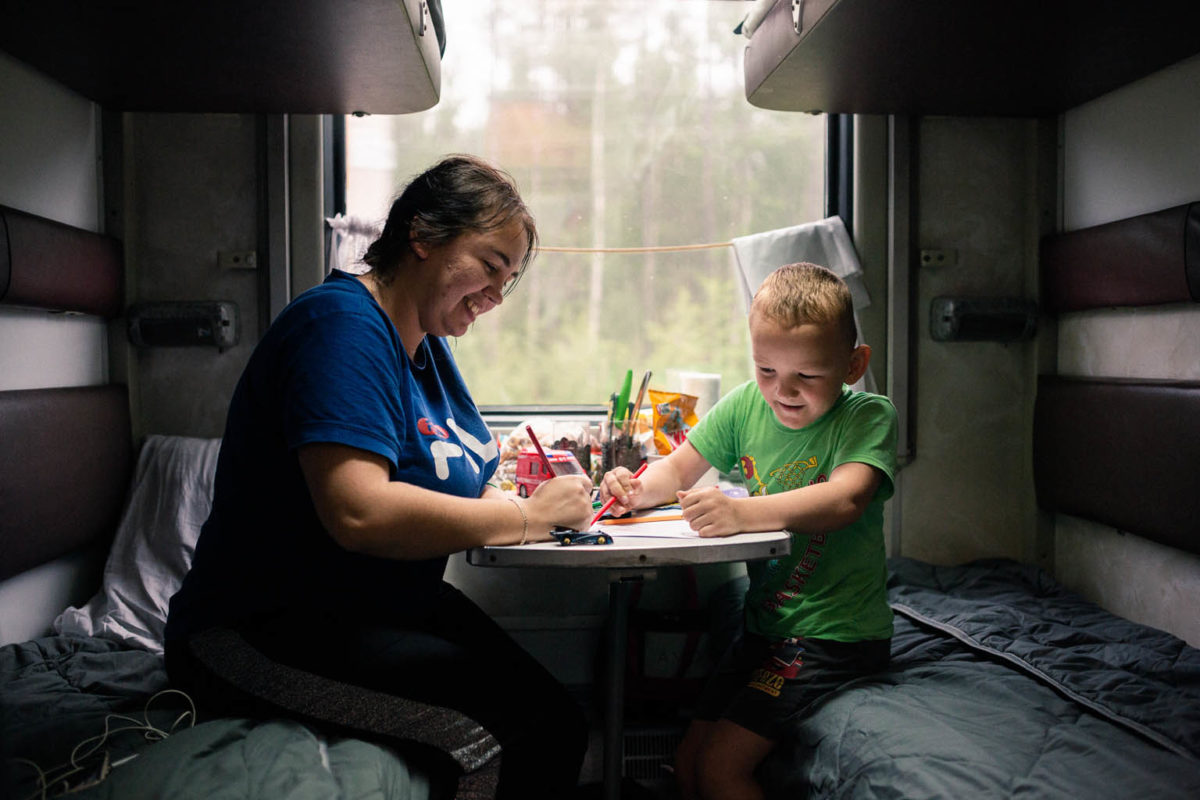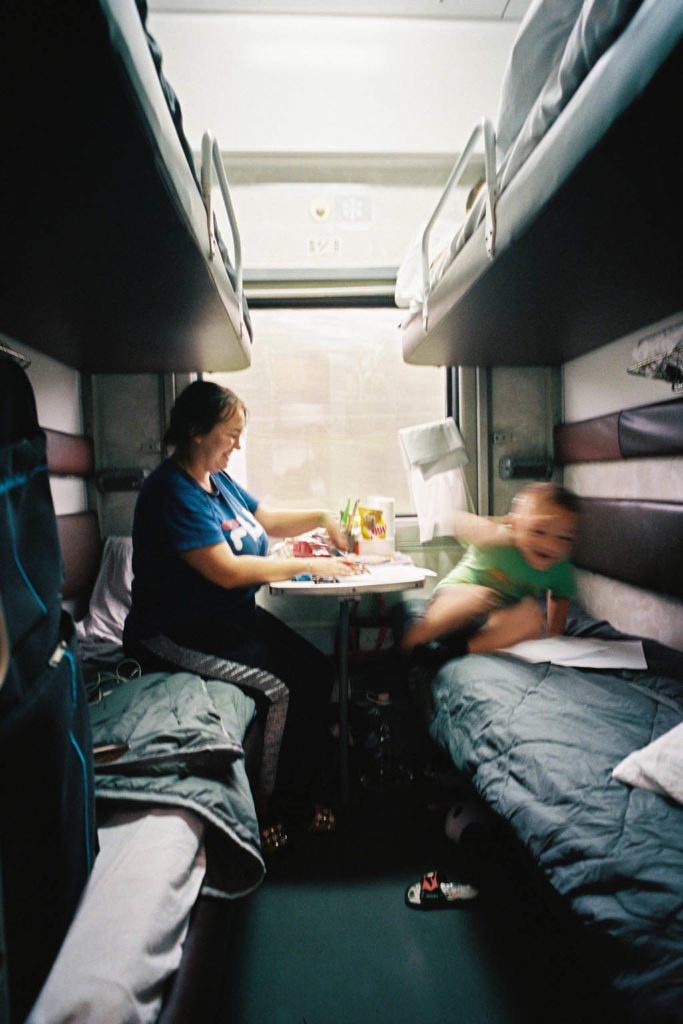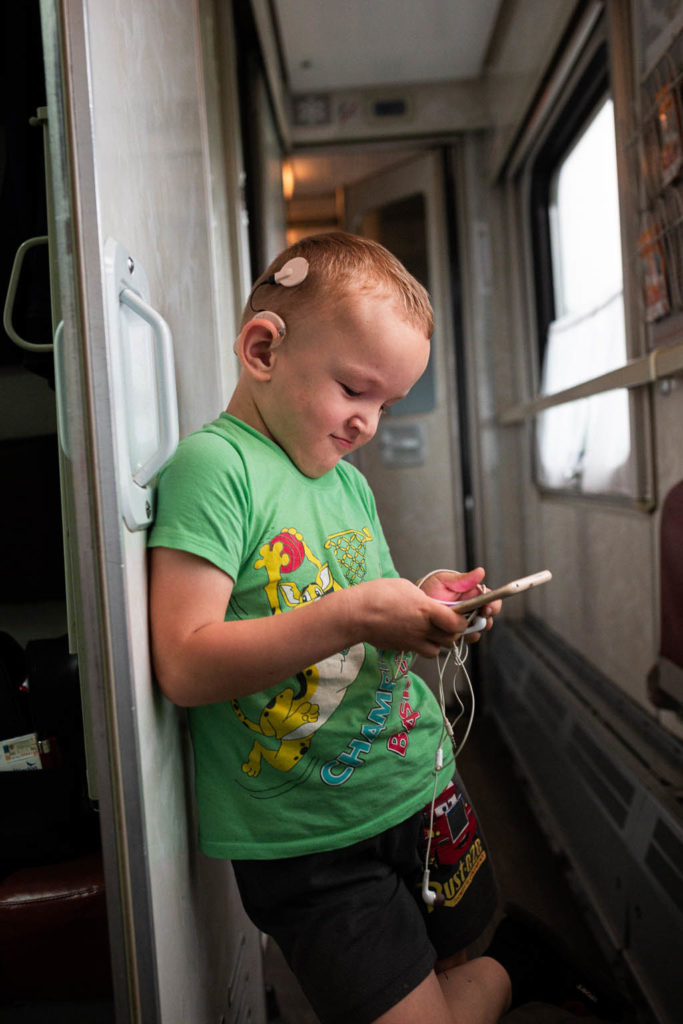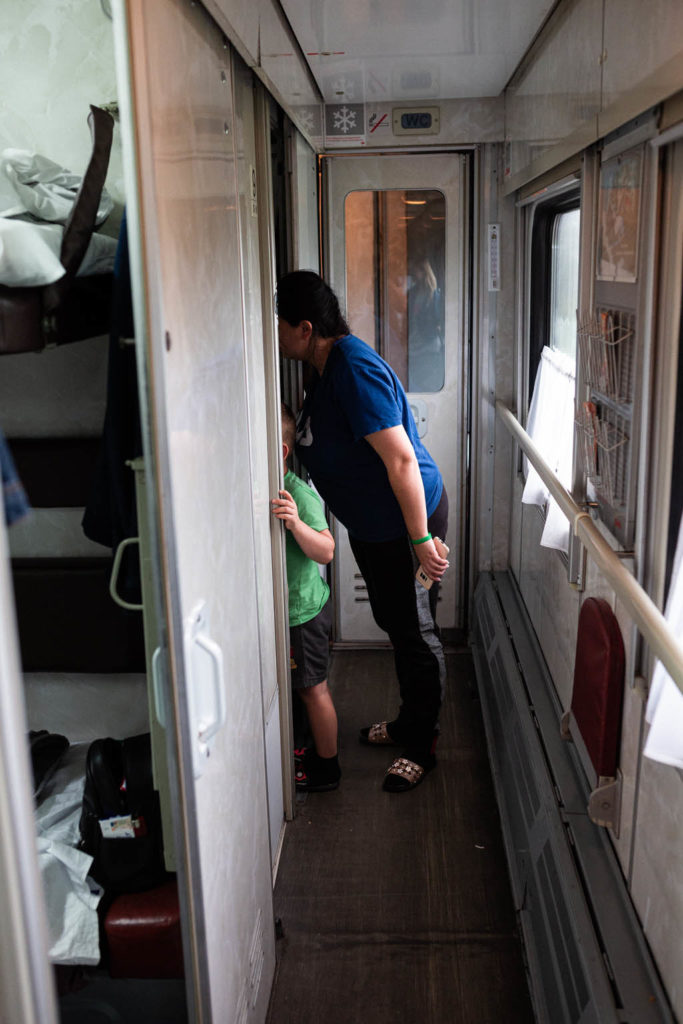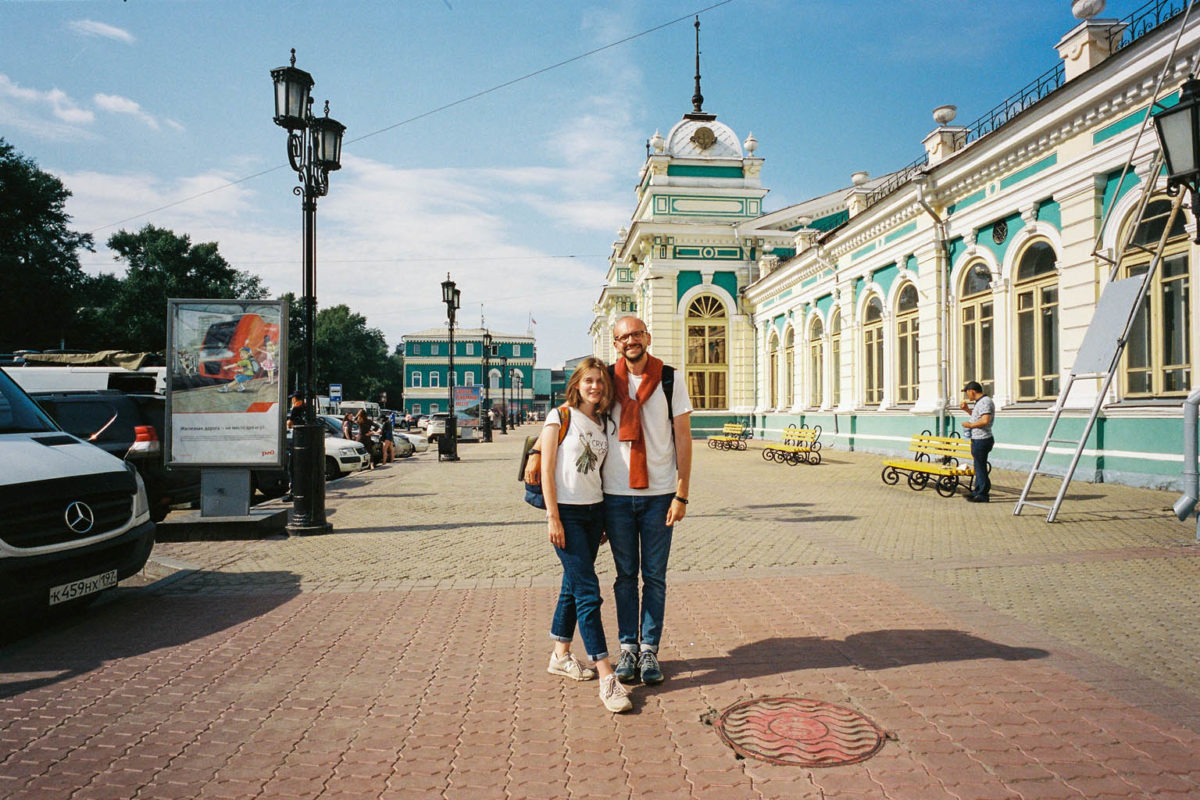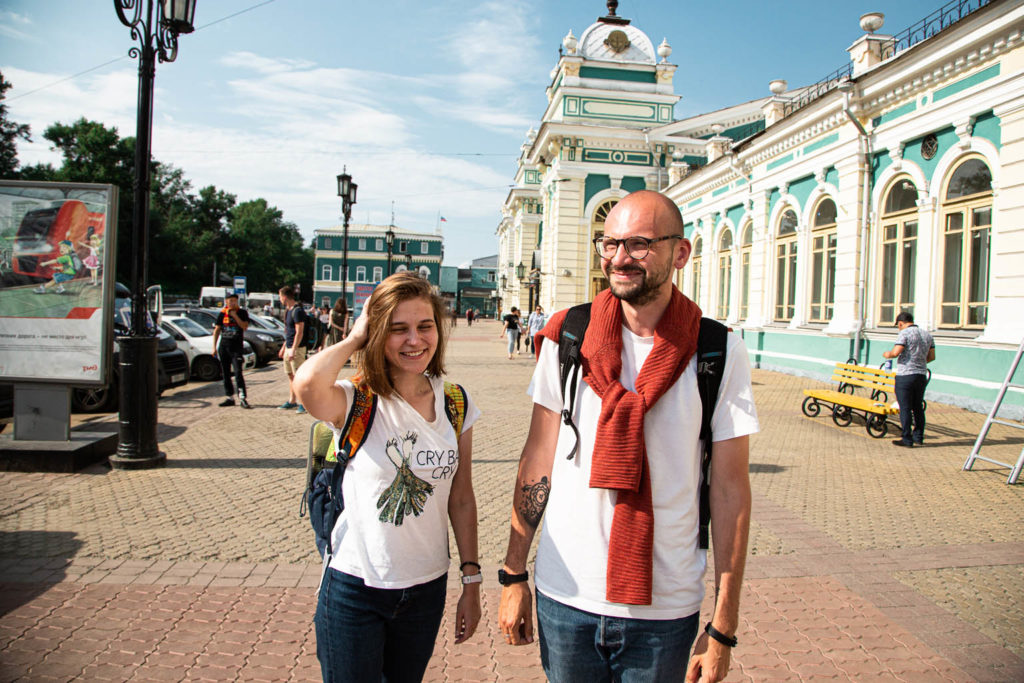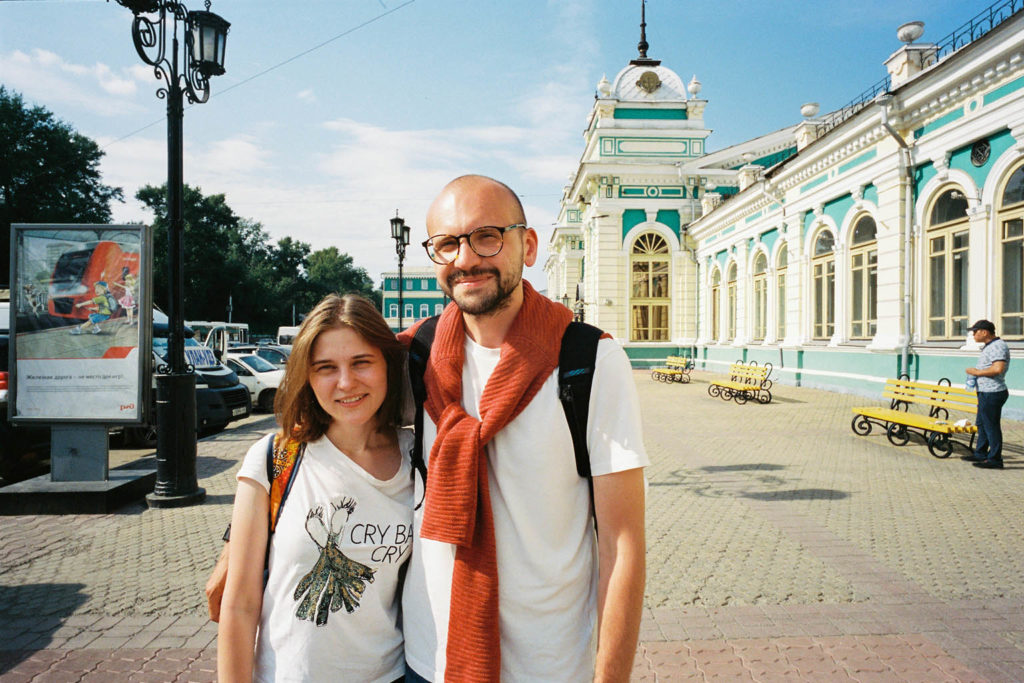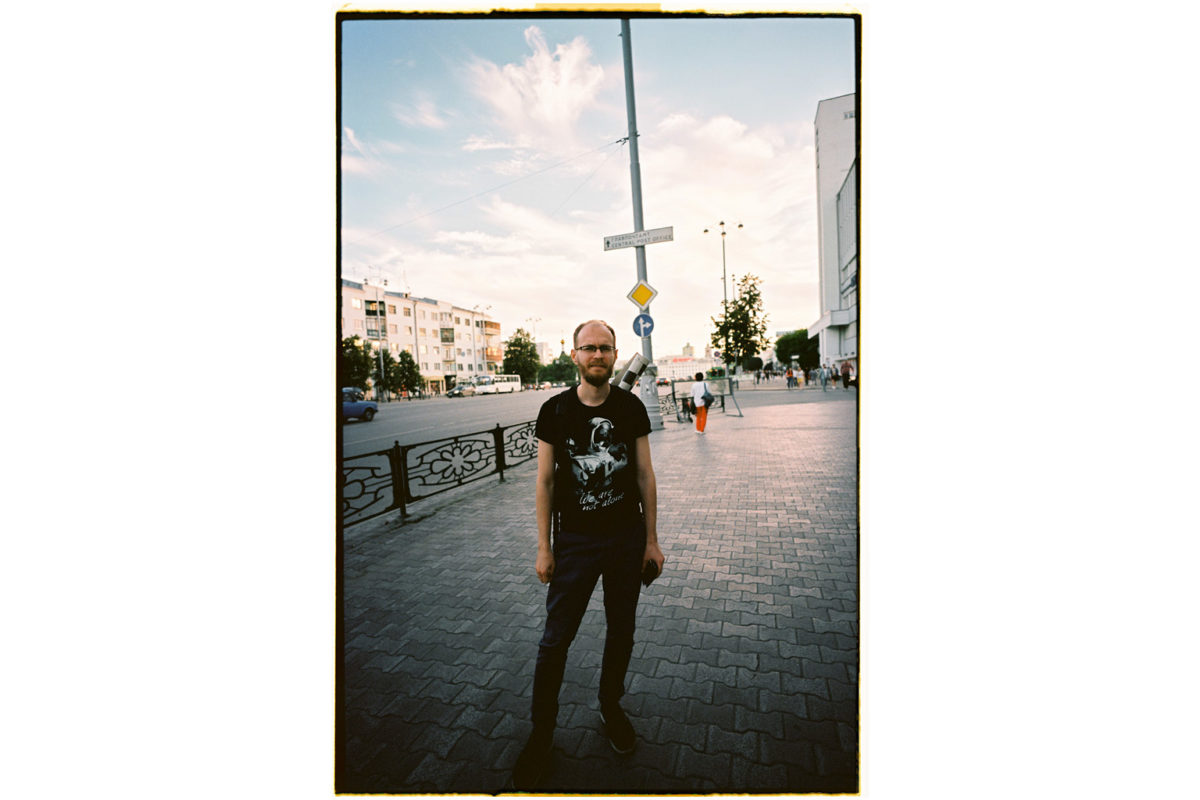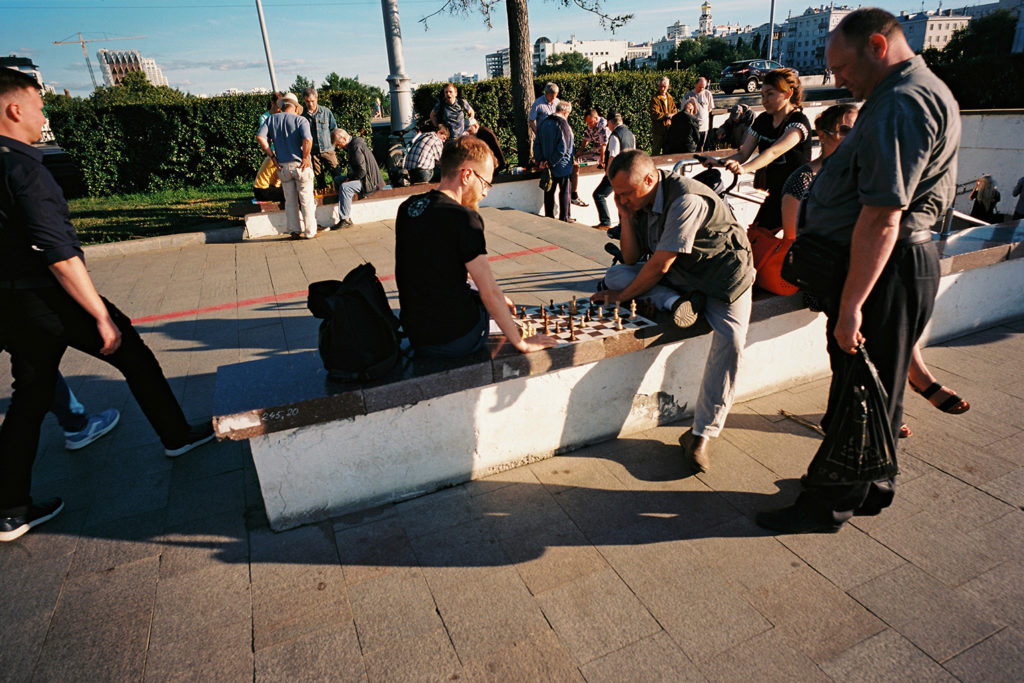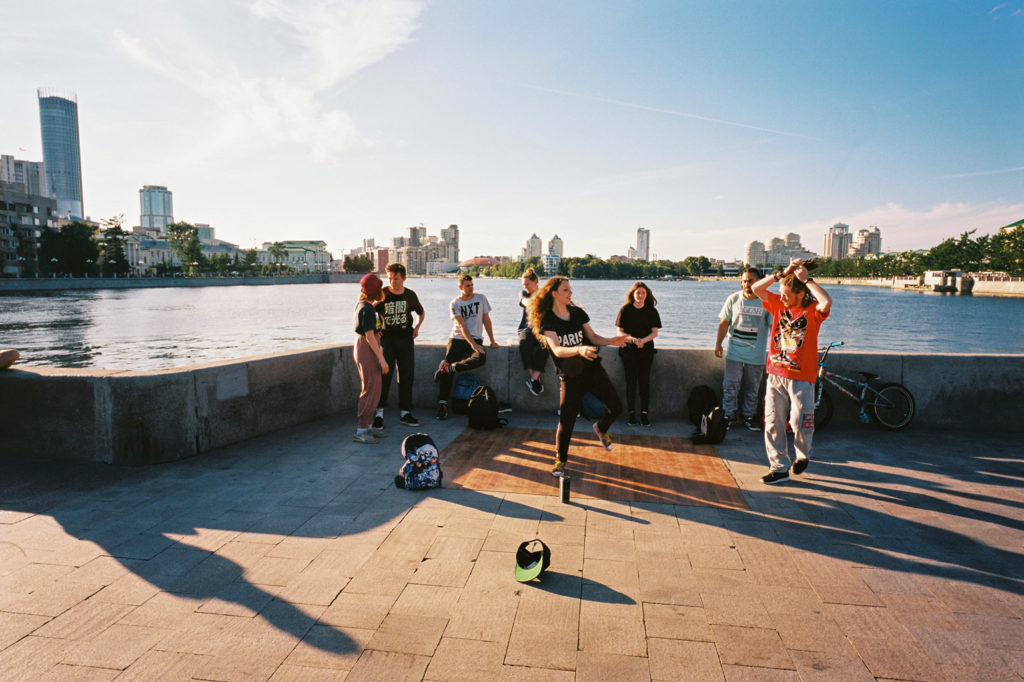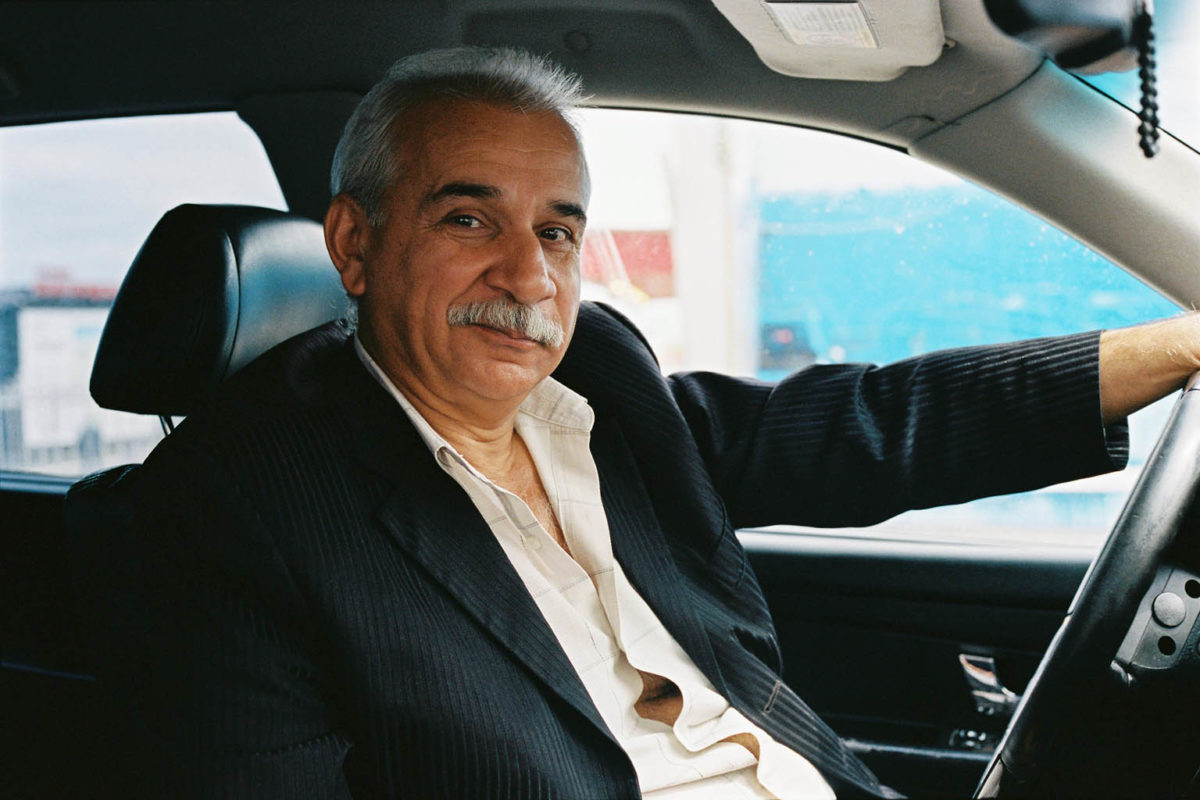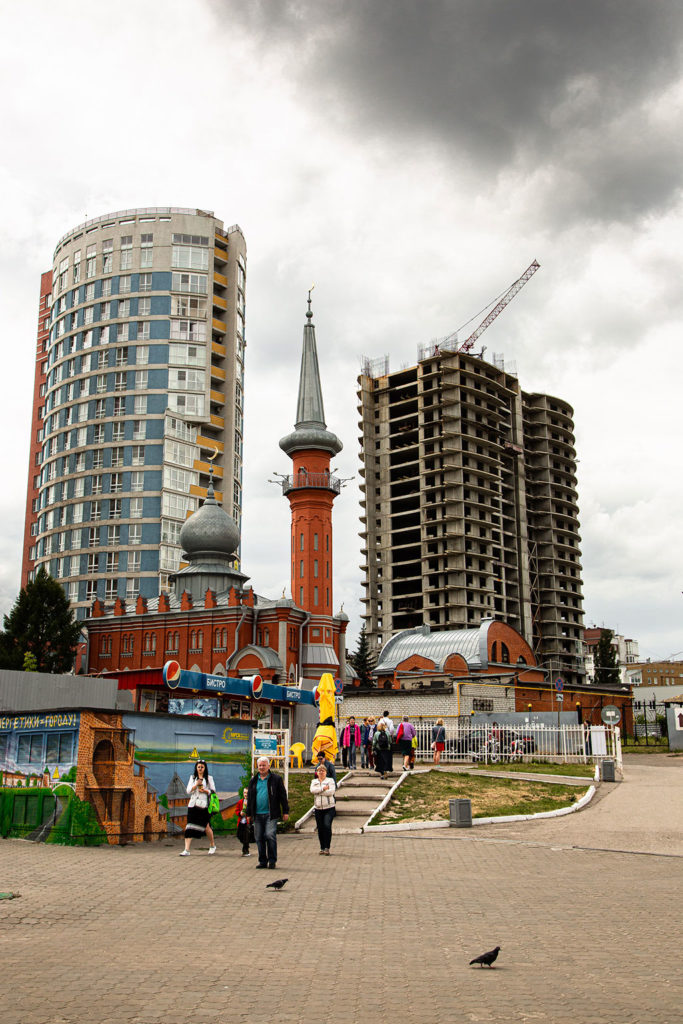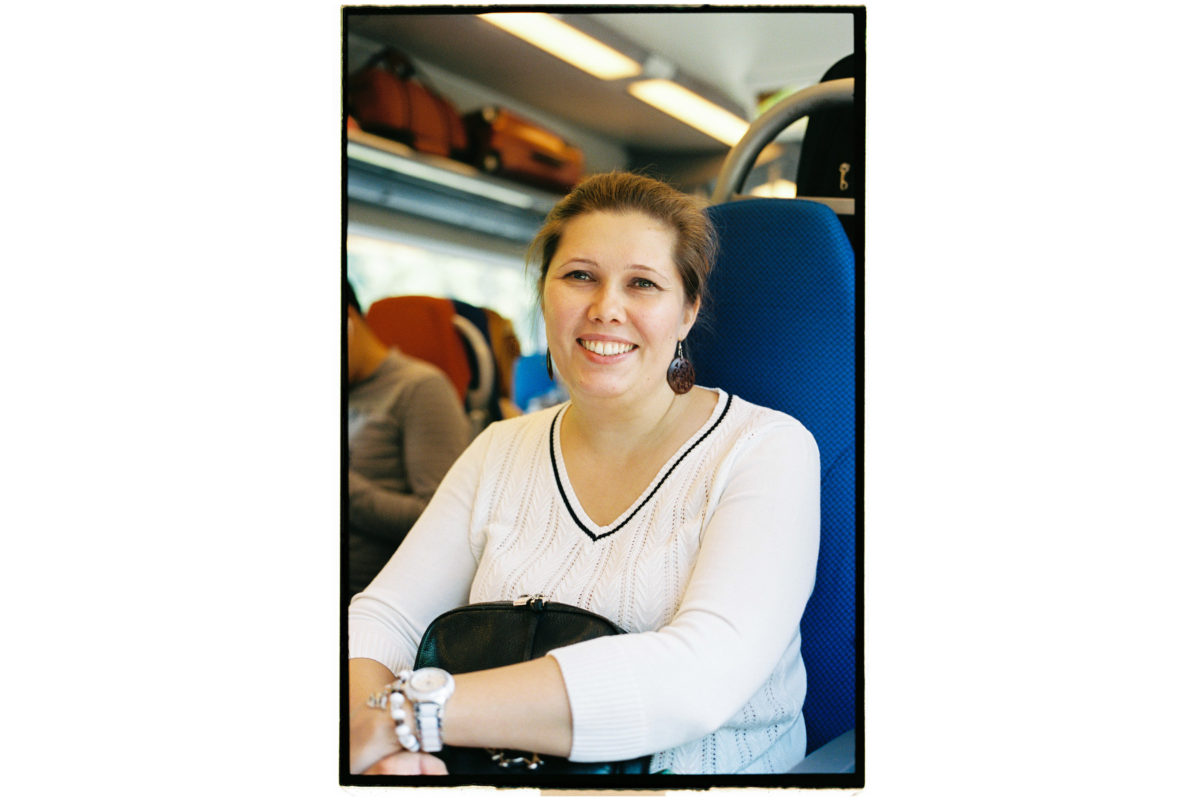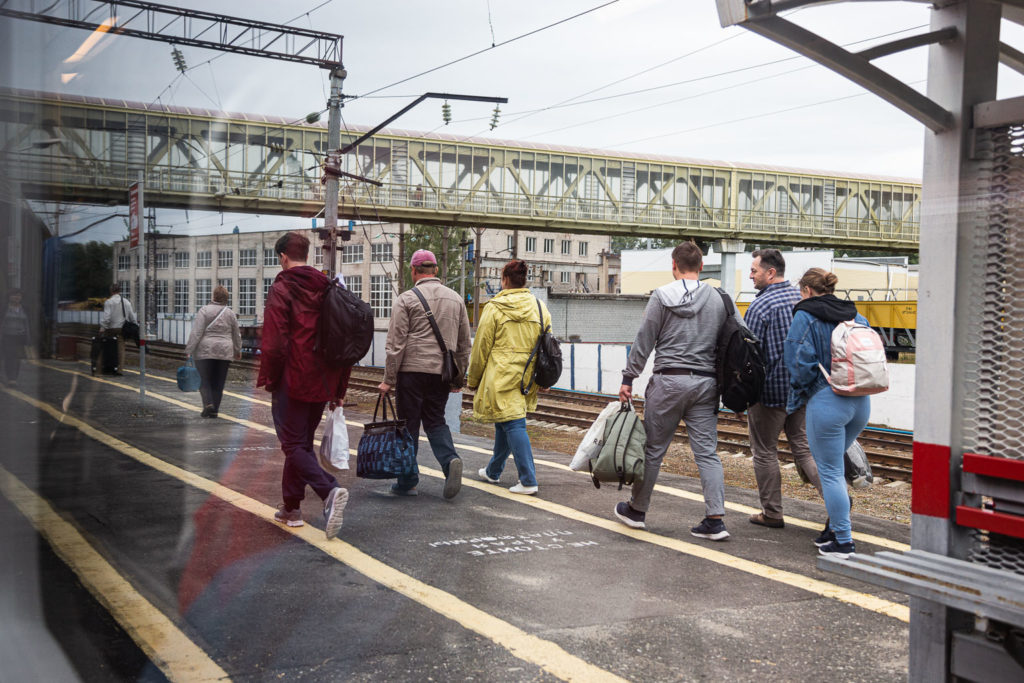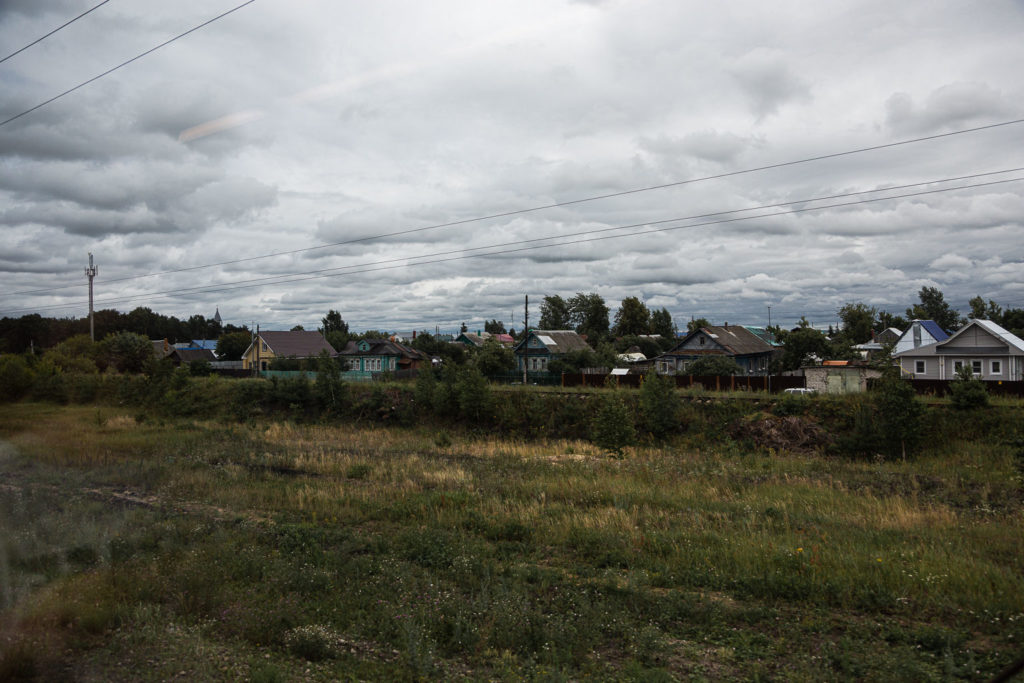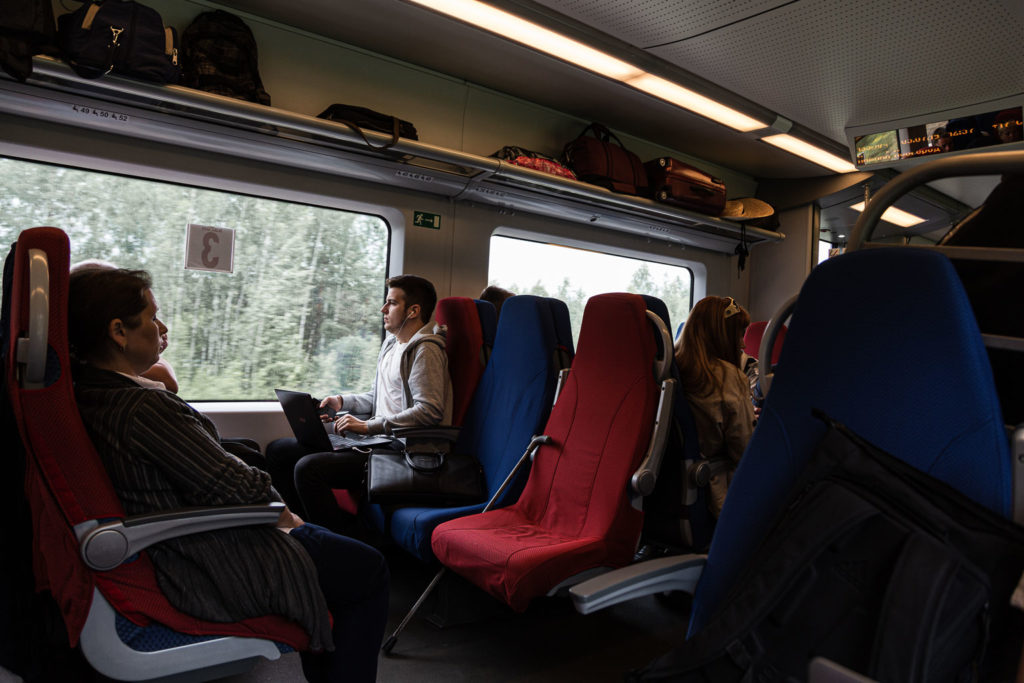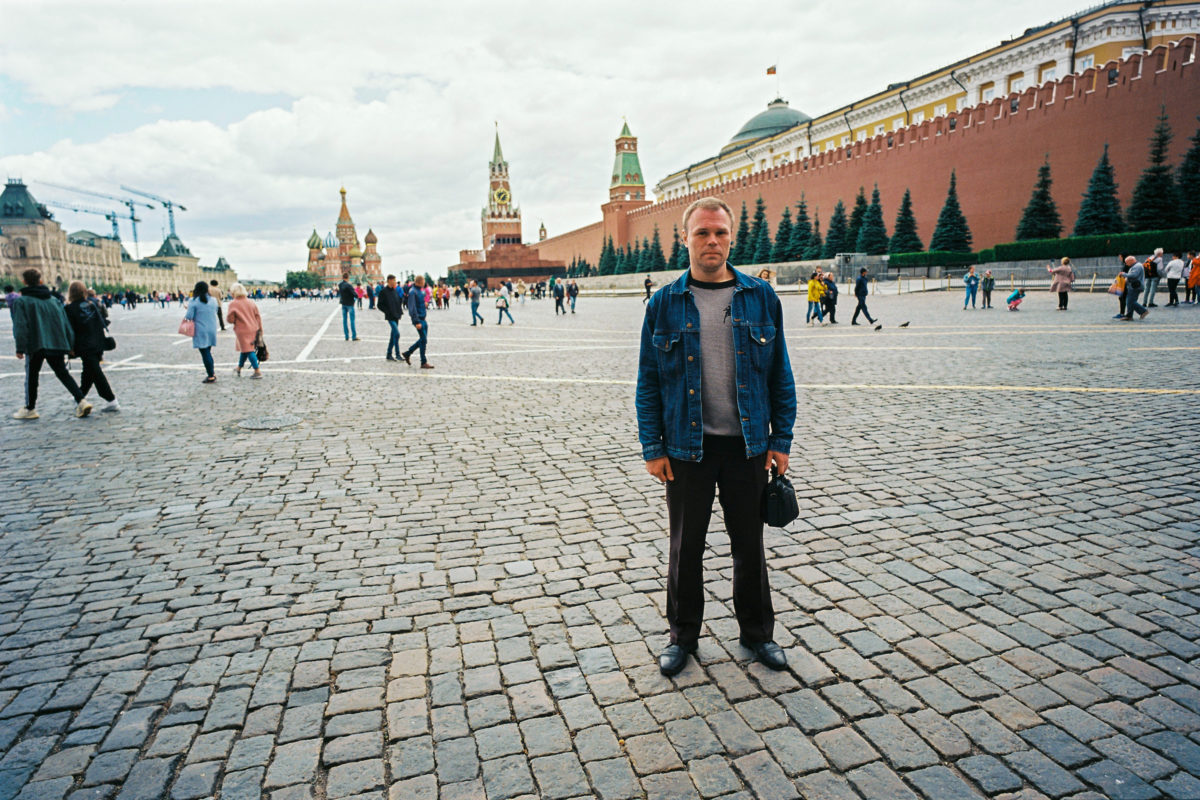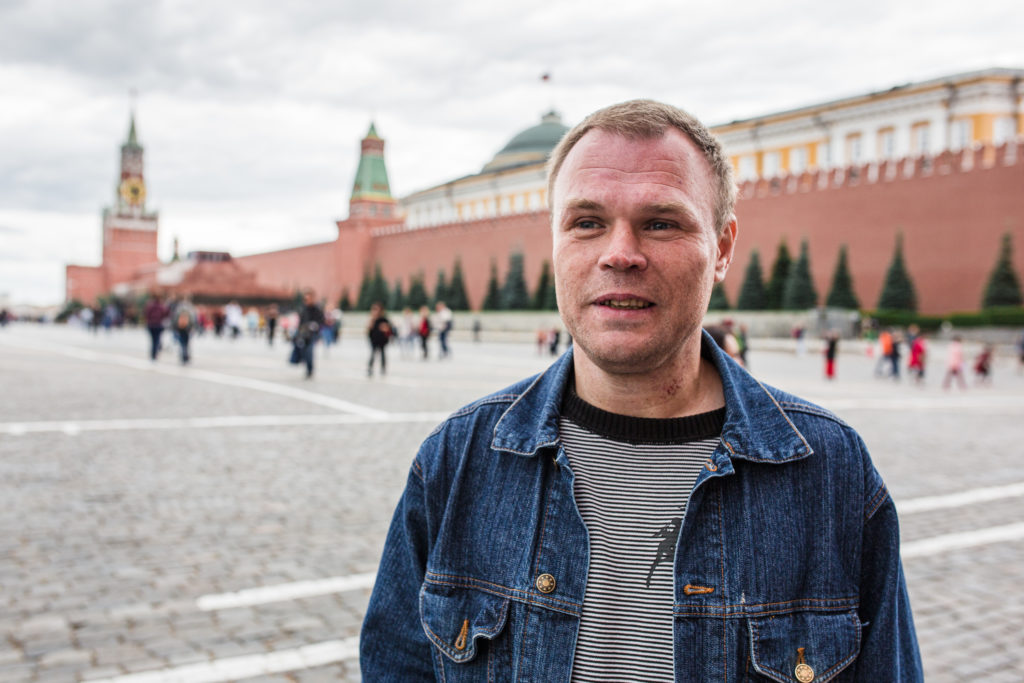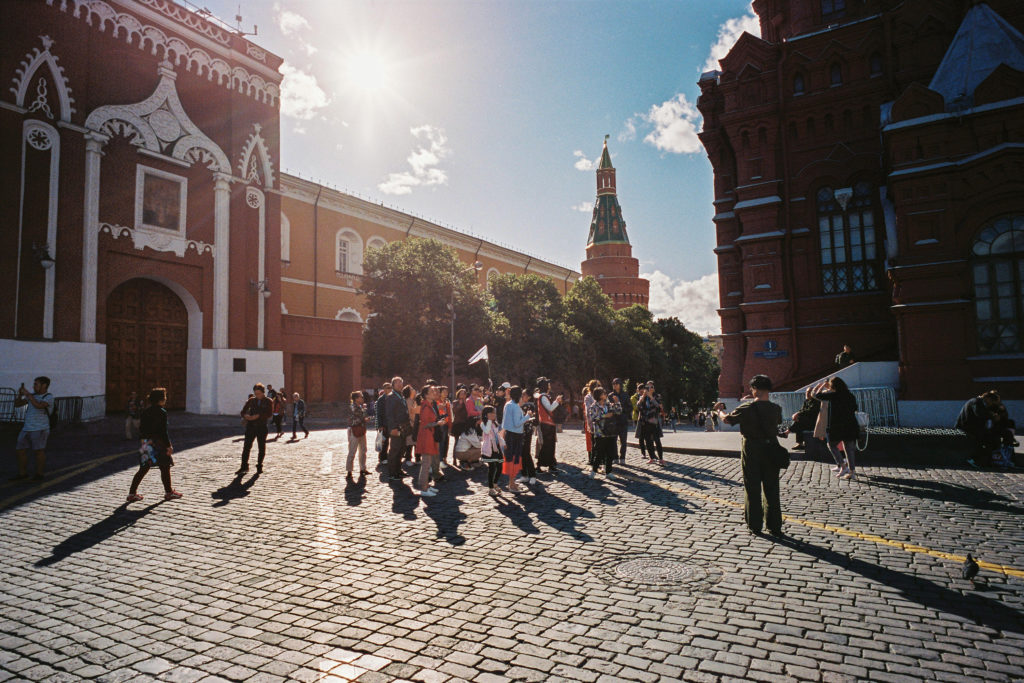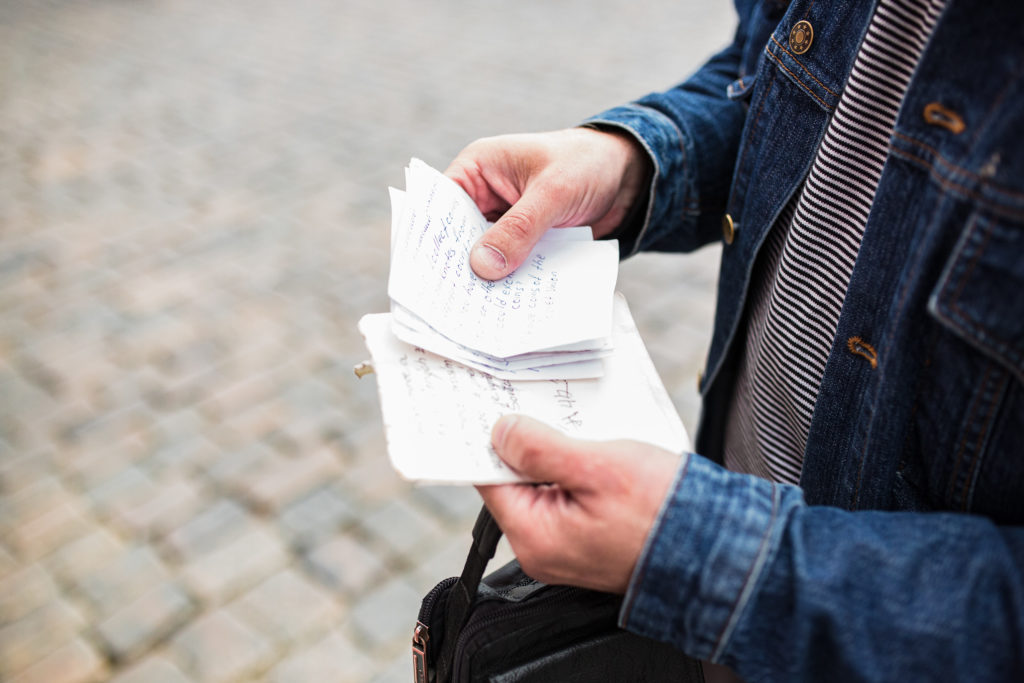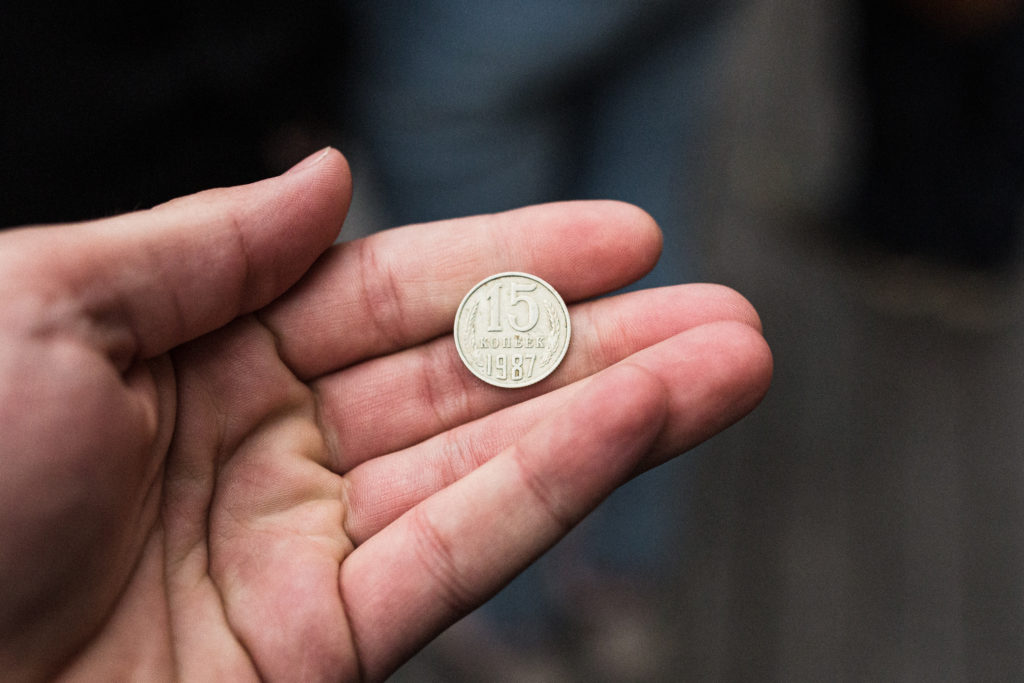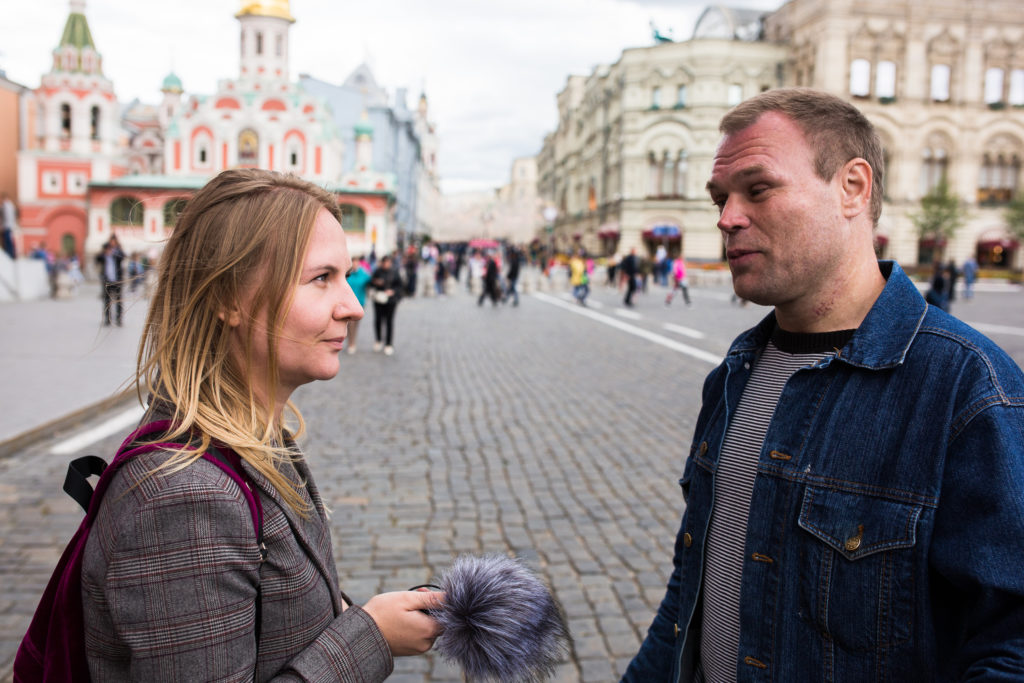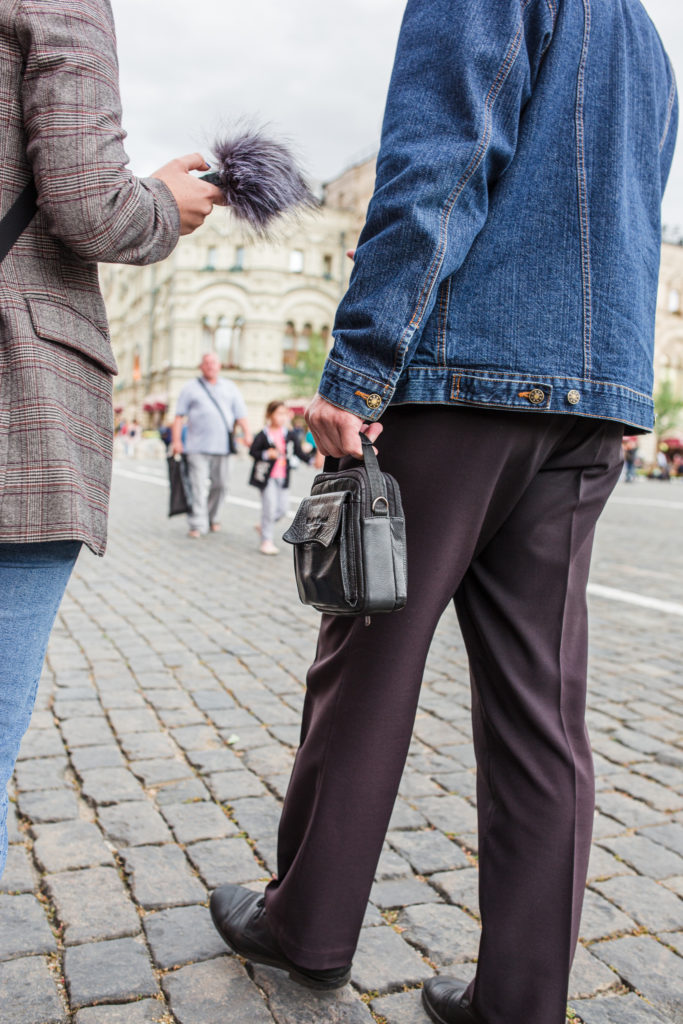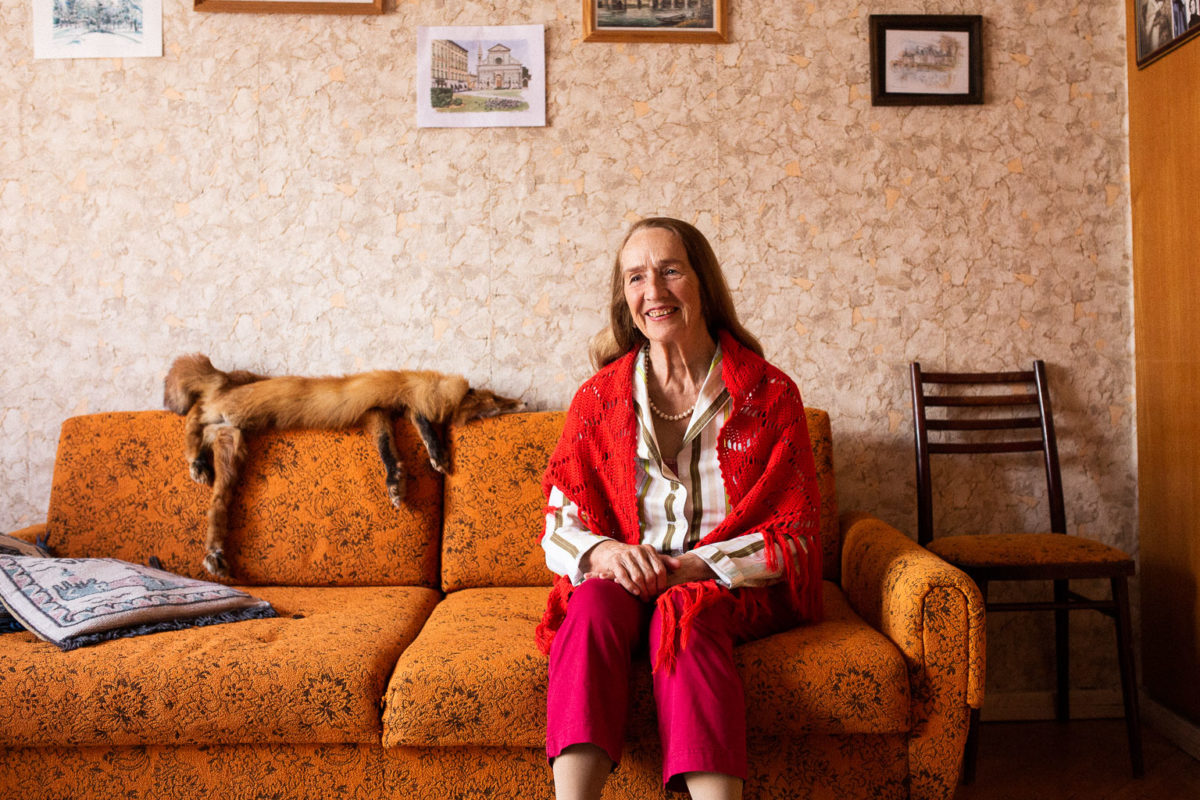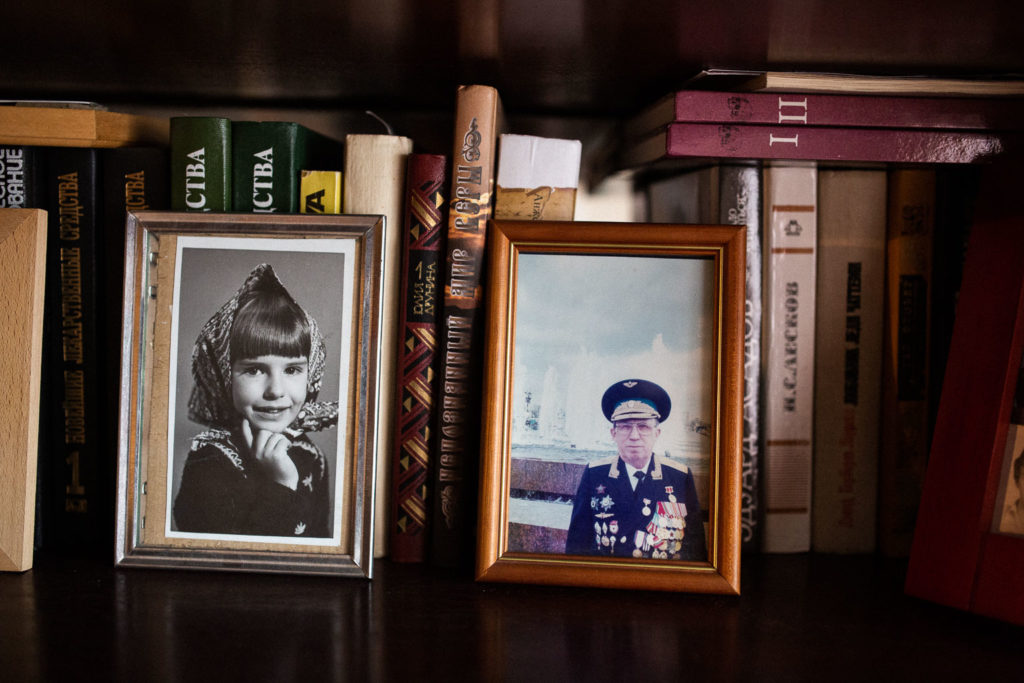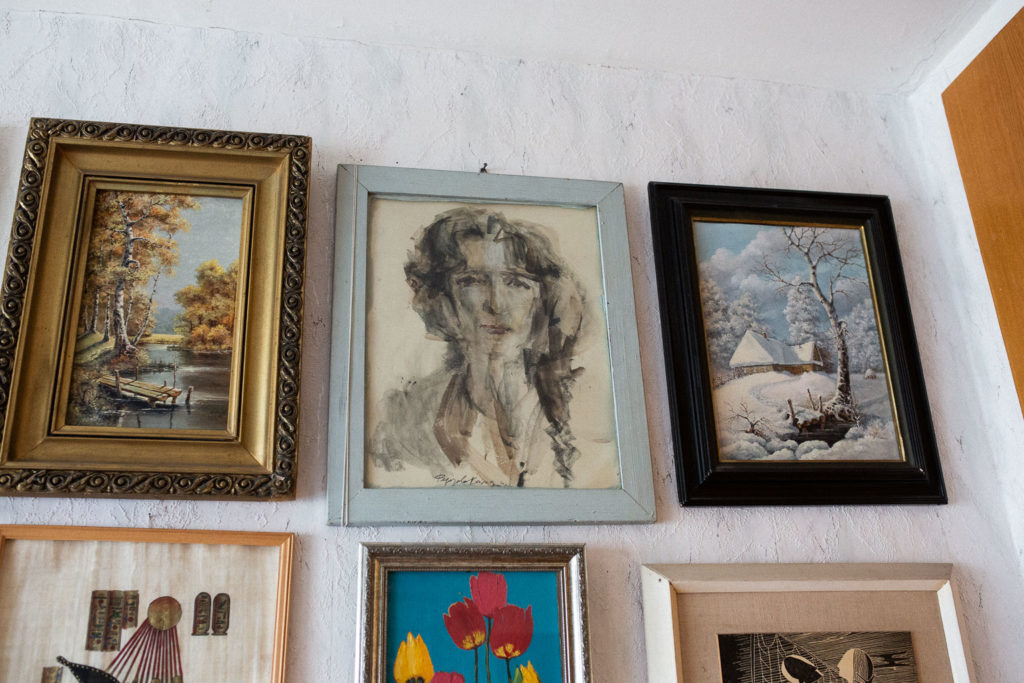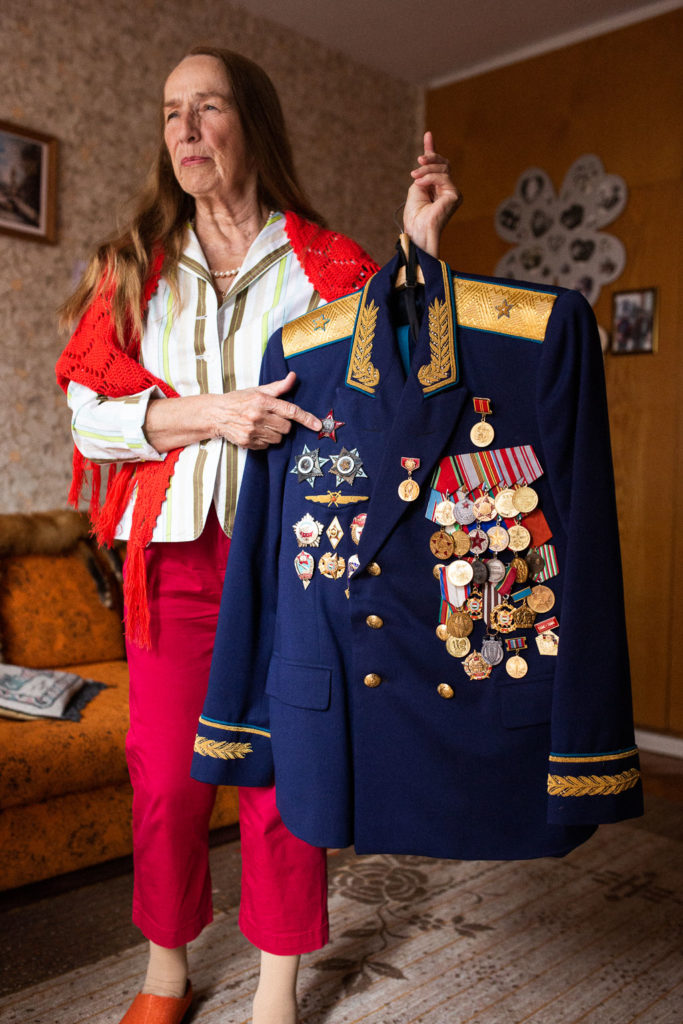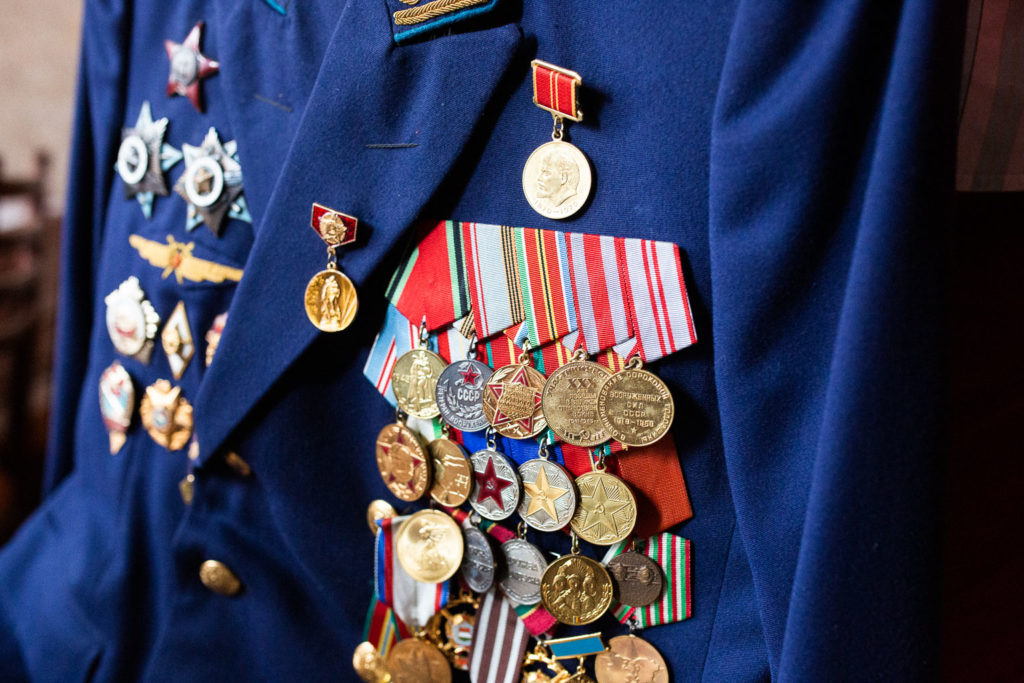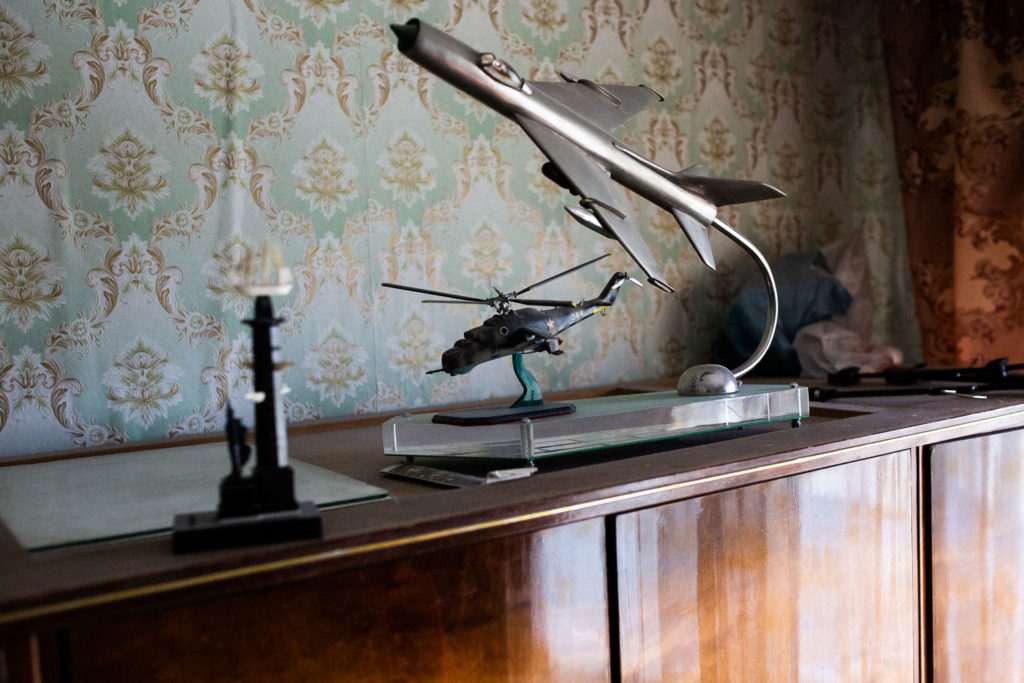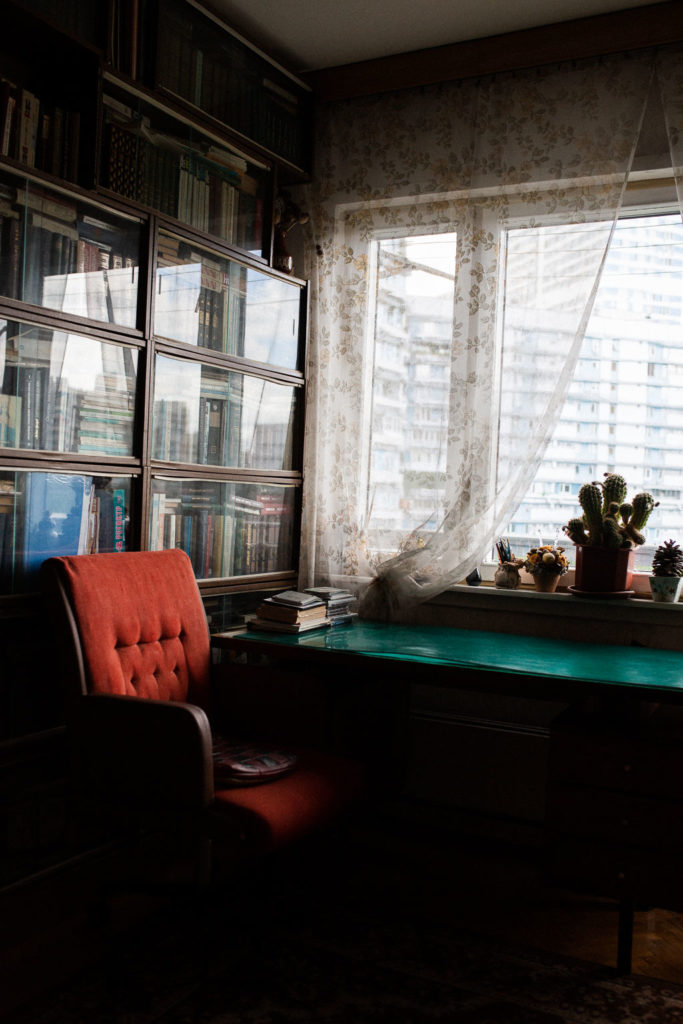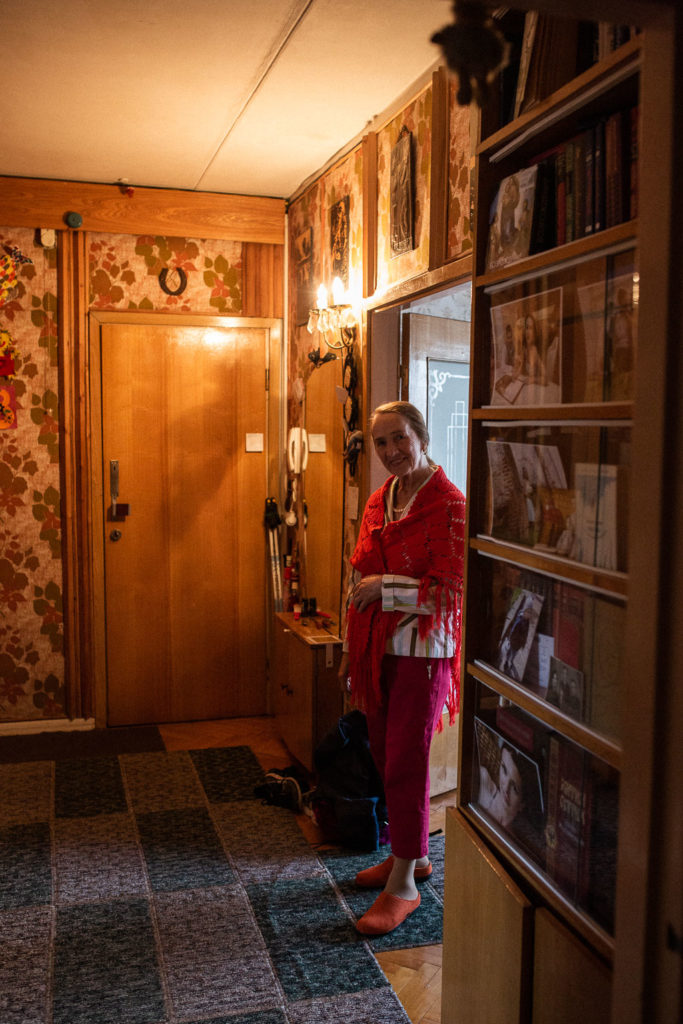Ivan, Secretary of Agitation and Ideology
Khabarovsk Bureau of CPRF, the Communist Party
of the Russian Federation
As we, меsто47 team (photographer Georg and writer Marina) stroll around Khabarovsk, an enormous red Soviet flag draws our attention. “Khabarovsk bureau of the Communist Party of the Russian Federation” reads a sign on the door. We try to catch a glimpse through the window, and the interior looks like museum of Soviet history: there is a huge Lenin poster on the wall, calling for hard labor as a direct highway to socialism and a shiny, almost brand new bust of Stalin . After some debating, doubting and hesitation, we decide to walk in.
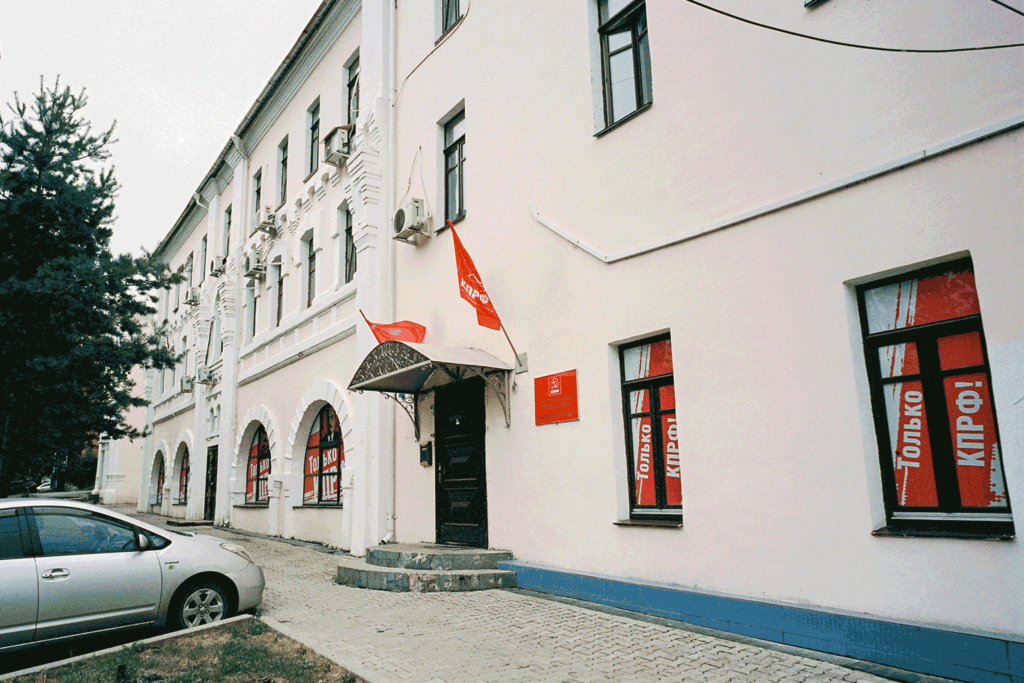
The first thing we see is a portrait of Stalin, a huge stack of freshly printed newspapers and a bunch of flags, rolled up and put in the corner. The man at the reception desk asks us what we want. We ask for a brochure, but he instead he suggests to talk to Ivan, who welcomes us with a smile and an introduction of himself and his long title,
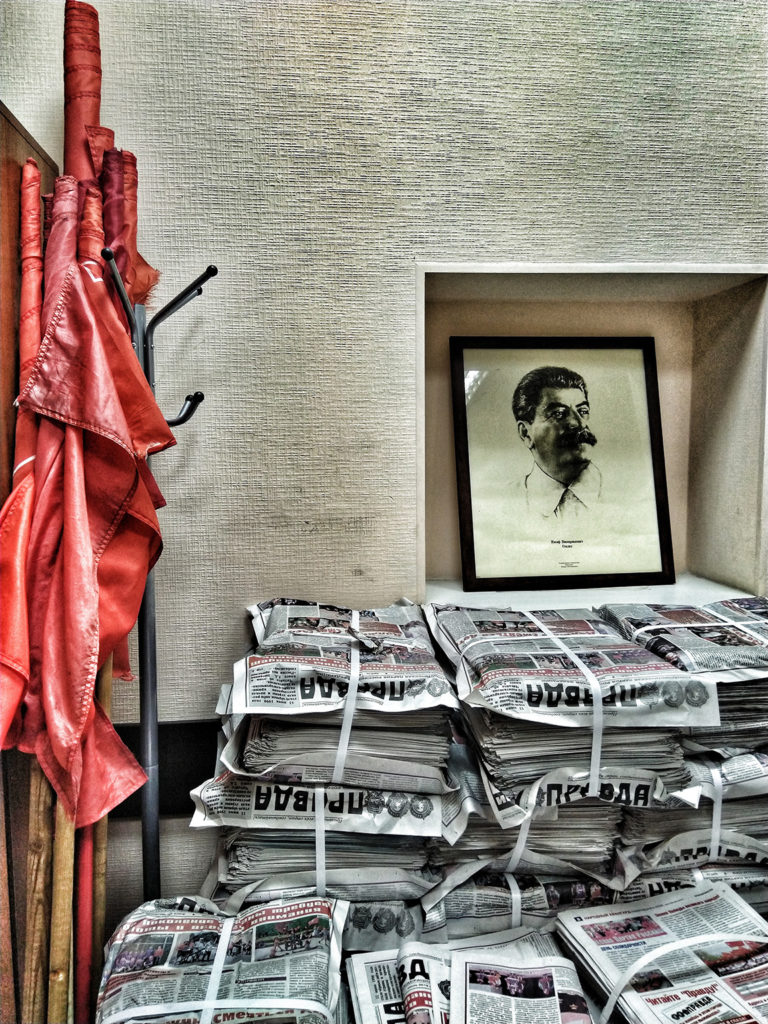
“Nice to meet you, I am Ivan, Secretary of Agitation and Ideology, for Communist Party, Khabarovsk Bureau”.
We are surprised by how young he is, he should be under 30. We explain the concept of Mesto47 project as a collection of human stories, and he agrees to an interview.
“Just wait here for a bit. I need to finish writing couple campaign slogans and will be right back with you.”
While we are waiting, a man in a suit, on his way out of the office asks us who we are and what we want. After a quick explanation, he turns to Georg and – in perfect German and very direct – tells him that he hopes that Georg knows that Austria is only what it is now, because of the Soviet Union, as the other allies in WWII wanted to split it, like Germany. We later find out that he was a diplomat in the soviet embassy in Germany.
The wait gives us freedom to look around the room and study all objects. Communist brochures. Endless photos of Lenin. Printed slogans. Schedule of party regional and national meetings. Party newspaper and rulebook. Like we rode a time machine back to the USSR.
After twenty minutes, Ivan calls us in, lets us turn on the recorder and starts telling his story.
Ivan: I was born in Khabarovsk, I have lived here all my life. In Russia, family history is important.
I am very proud of my grandparents and great grandparents from mother’s side. During Tsarist times, my great grandfather killed a manager of his landlord, because the manager wanted to take everything from his family and starve it to death. He was sent to Kursk by force. My grandfather fought in the Second World war, he was a partisan during occupation. After the war he was a director of production on a big factory in Khabarovsk which exported its products to Japan, Saudi Arabia and eastern Europe. He was awarded the Order of Friendship of Peoples (ed. note: a Soviet order, awarded to people for strengthening international friendship and cooperation). My other great grandfather was a sovkhoz chairman.
Ivan looks at Marina, trying to find an english equivalent of the word “sovkhoz”. They both laugh, trying to come up with a suitable term. It is one of those words that sounds so natural for a Russian who was born in the USSR (even in the last months or days of its existence), but it would take a while to explain to a foreigner who is not familiar with daily lives and bureaucratic acronyms for things in post-Soviet Russia. These terms come up all throughout our conversation. Sovkhoz, a state-owned farm. Komsomol, the All-Union Leninist Young Communist Leage, a political youth organization in the Soviet Union. And many, many others.
Ivan continues,
My parents were also born into a working class family. My father was a firefighter. My mother studied engineering, but during the 90’s, because of the USSR’s collapse and difficult economic times, she worked almost everywhere she could find work: selling goods at the market, in the fire brigade on a call line.
Of course, everyone had a different childhood, but childhood in 90’s Russia was very different from the one children are having today. It’s this feeling when you don’t know whether you will have something to eat tomorrow.
There were many gopniks (ed. note: young men of lower class suburban areas). Every day, when I was walking to school, the gopniks were picking on me, whistling and telling me to approach them. They were sitting in garages in their Puna and Abibas (ed. note: chinese knock-offs of big brands) suits, teen gangs trying to get money.
I had a Dendy (ed. note: Nintendo clone, produced exclusively for the Soviet and later Russian market). Happy childhood (smiles). And a lot of books. And books made me a communitst. I read a lot. There was a cult of knowledge in my family. When I was a boy, my mother taught me about art, she showed me works by Vereshchyagin, the famous Russian war artist, and the Renaissance period. She read Russian poetry and Russian classics to me. But most books of my childhood were encyclopedias. When you read a lot, you shape your view of world economy and society. The leftier the book I was reading, the more coherent it seemed to the reality I saw around me. And I read, read, read. In high school I was a liberal, but slowly and steadily I was becoming left.
I became a communist after my 10-days trip to North Korea in 2015. I visited both Pyongyang and the north of the country. The capital is a magic destination. The countryside is poor, but clean. It’s in order. It’s a simple life. They are not rich, but they are not dying or starving to death. The korean countryside looks better than in Russia. Russian villages have run down houses, many ruins reminiscent of the Soviet era.
They do say that in North Korea they only take you to Potemkin villages, but it is hard to do that, when you take alternative routes from one city to another for thousands of kilometers. As you ride, you see painted clean houses and many fields. And it makes you think that socialism is not so bad. When I returned, I applied for Khabarovsk Komsomol, and a year later I became a member of Russia’s Communist Party.
Marina: So they brainwashed you very well in North Korea?
Ivan: The beer was excellent, yes (laughs).
Georg: Did ever you visit a western country?
Ivan: When I was in school, I was in Finland and one day in Stockholm. Of course I admire the economic standard of western countries, like USA and Japan, or South Korea. But I think that a lot of those standards are paid for by unfair trade and workers from other countries. There is an inequality in international trade and exchange of goods, that’s why some countries gain more and some countries get less.
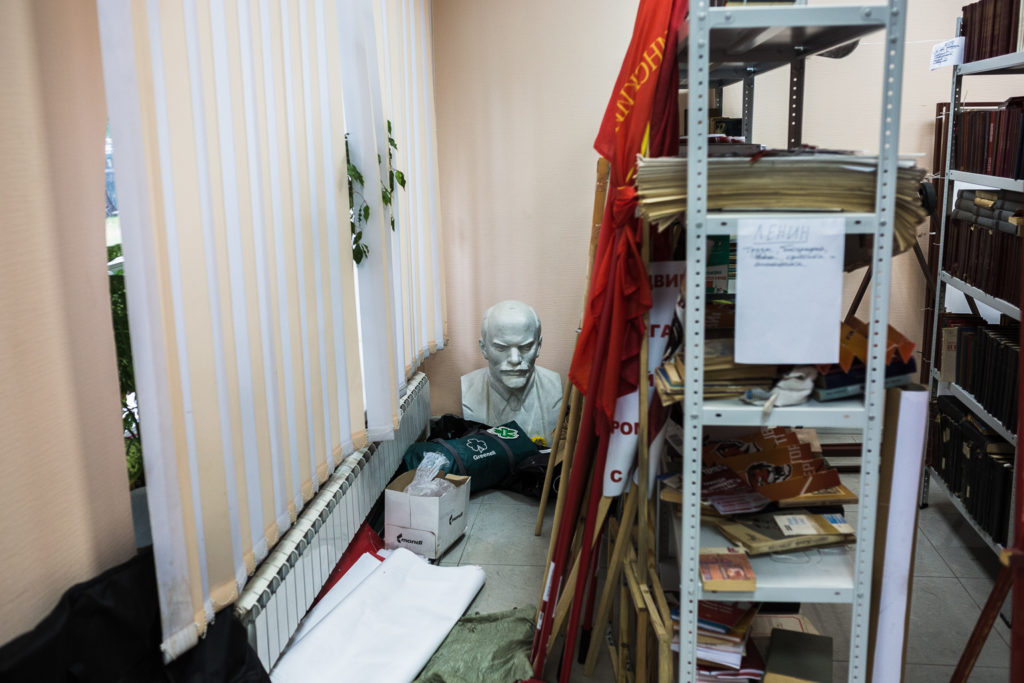
Even liberal people who study Korea, say that if the two Koreas will end up together as a market economy, it will be a catastrophe for North Korea, due to the lack of employment opportunities for North Koreans. It’s a hierarchical society, and North Korean people will end up at the bottom.
Georg: So what exactly are your responsibilities?
Ivan: In Soviet times the word “propaganda” in my title stood for “education” or “enlightment”. I define the direction of election campaigns. Should we be more like “old CPSU (ed. note: Communist Party of the Soviet Union) is back” or ”We are simple people like you” to win the election.
Georg: Isn’t it all a bit outdated, the image and style? Are you not planning to modernize it? To get the ideas better into the 21st century. If you propose a new, technologically developed communism, why are we greeted here by Stalin and Lenin?
French people still sing La Marseillaise and they still relate to Robespierre as a great revolutionary even though he is considered an incarnation of Revolution’s Reign of Terror. Two centuries later, the French Republic is a normal western country. It has implemented a lot of his original ideas, maybe in a different form with different content.
Already in the 90’s, communism has brought in computer science for better planning. In the late USSR times, there was a lot of work on combined math and socialism. The future was seen as computer planning, with no government or bureaucrats making decisions. Glushkov from the Academy of Sciences developed these theories. To put it simple, let’s say you want to open a café. You load your idea into the computer, and it calculates how it will suit the overall plan of the country. If this initiative is timely, if there is enough building material for you to proceed.
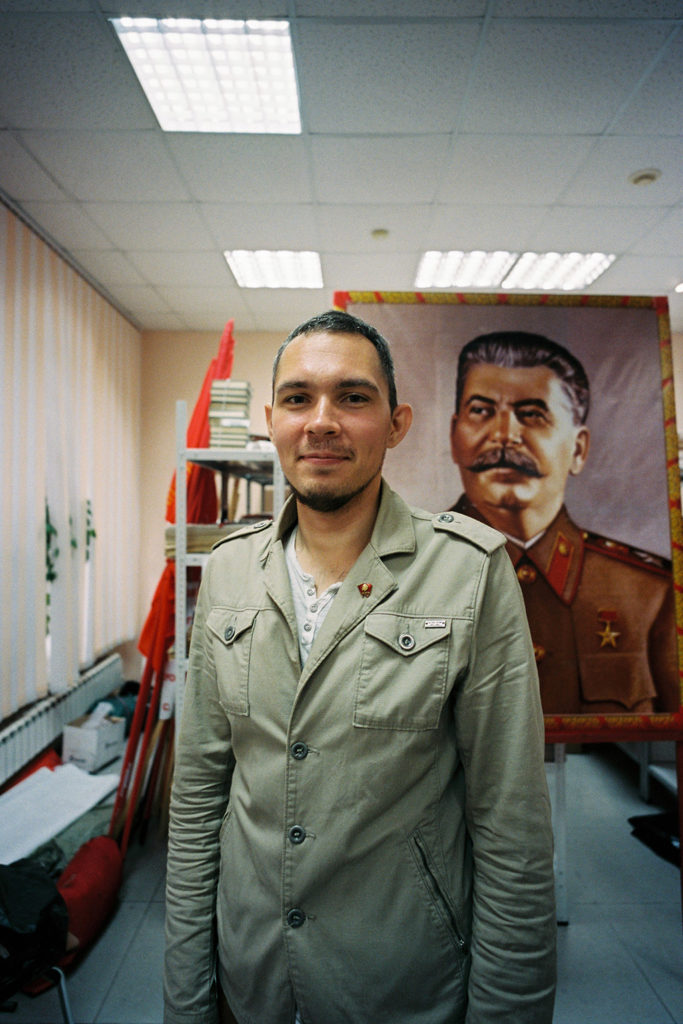
Marina: Is communist a 24/7 ideology? Do you have a portrait of Lenin at home?
Ivan: In my house I have a small Lenin portrait, in my bedroom. I have a hand-painted portrait of Mao Zedong. I personally love him a lot, not only because he was a great visionary and had great success in factory building, but I respect him as a politician and master of intrigue. And a lot of things I was reading about him in his biography were close to me. I respect him, because he achieved an industrial revolution in a country without an industrial proletariat and it’s a great breakthrough in communist theory and practice. He succeeded in leading a mostly peasant (which is a small kind of bourgeoisie) country into socialism.
My girlfriend is a communist too. It was not a must criteria for me, but it is still pleasant she shares ones political views. I met her at a Komsomol party meeting in Moscow.
As the interview is coming to an end, we stick around and chat about our trip. We show Ivan a kiss selfie we made in Ulan-Ude with an enormous statue of Lenin’s head. He approves, jokingly saying that communists embraced kissing culture since Brezhnev times. “An intimate kiss that goes into the dents”, that’s how our leader put it.
As Georg searches for a photo spot, Ivan goes to a large Stalin portrait without any hesitation and poses for a photo. We say good-bye and leave the bureau. But before we go, Ivan gives us a present: beautiful shiny Communist party pins. We thank him and put them on our jackets before we leave. Just to take them off again as soon as we turn to another street.
